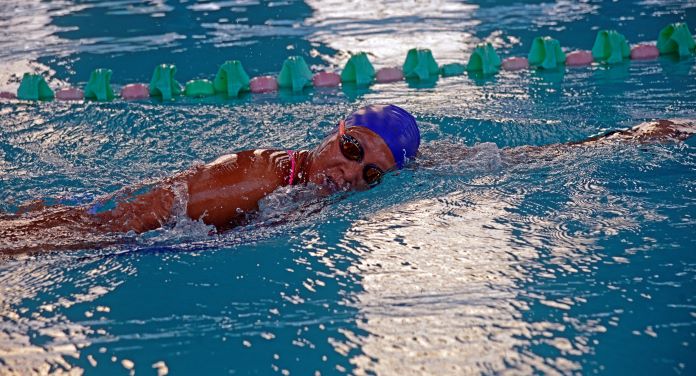Bhubaneswar: Sucheta Deb Burman, who will be looking to conquer the English Channel in July, has been preparing for the tough assignment at Kalinga Stadium.
The 38-year-old long-distance open water swimmer’s ultimate target is to undertake 13 toughest swims of the world and create awareness on climate change. She has plans on collaborating with the Odisha government as well.
Read on…
How is your practice going on?
Practice is going on smoothly… will speed up in the next few days as the English Channel event is getting closer. I will have to acclimatize my body to swim in cold water of less than 16 degrees.
Why did you choose Bhubaneswar for your practice?
I had heard a lot about the sporting facilities here. Olympic winner Neeraj Chopra also came here for practice. This is my first visit to Bhubaneswar and it was a very different experience. The state-of-the-art sporting facility is one of the best in the country. All sports have been given equal importance and the High Performance Centres will help in developing champions from the state.

How popular is open water long-distance swimming in India?
Open water swimming or long-distance/marathon swimming is not very popular in India because it requires lot of safety challenges. Pollution and sewage are major issues. Besides, it requires lot of endurance, patience and stamina to swim several kilometres for hours. The sport is getting popular of late and many open water swimming competitions are being held too.
You being an NSI (National Sports Institute) and SAI (Sports Authority of India) affiliated coach and ultramarathon swimmer, what are your plans to promote the sport?
I want to collaborate with the Odisha government to set up an Open Water Swimming Centre in Odisha and train marathon swimmers. There are many water bodies in the state like sea, lakes and rivers and the government is so proactive.
Tell us about your latest experience at Palk Strait?
It was the worst-ever open water swimming experience I had and a nightmare for all. I set a new record of 10 hours and 9 minutes for crossing the Palk Strait, from Dhanushkodi in Tamil Nadu to Talaimannar in Sri Lanka, on March 23. But I could not complete the return leg as I was badly stung by sea weeds and some unknown underwater elements. Some threaded net-like things all over my body stung me and pressed me into the water. I tried to swim despite injury and bleeding, but after 17 hours and 35 minutes of swimming 65 km, I gave up just 7.5 km before the finish.
At 38, what is the secret of your endurance and how do you keep swimming so long?
Swimming is in my blood. My father and mother are both national level swimming coaches who trained me since I was 4. I train for 25 to 60 km per week to get faster and stronger. It requires lots of discipline to be an athlete. I wake up every day at 4 am and practise for at least 3 to 4 hours every day.
After the English Channel in July, what’s next?
I have set a target of completing the toughest 13 swims of the world as an eco-swimmer in the next eight years. I want to create awareness about eco-swimming in India where the swimmers will clean, protect and preserve the water bodies. I will be 40 years old in two years’ time, and to start this memorable decade, I plan to attempt a solo sea swim of 400 km in India as an eco-swimmer. To achieve this, I need lots of preparation, dedication and focus. Wish me luck.


